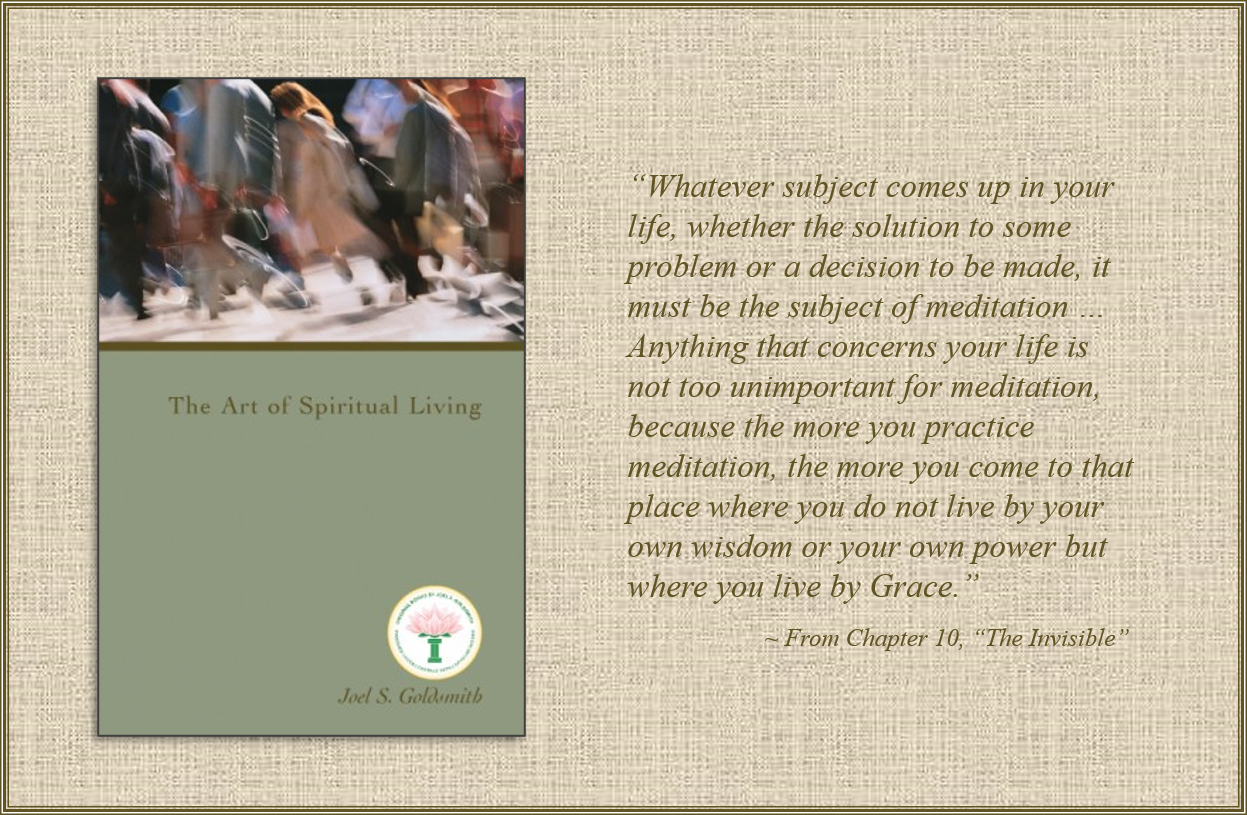
The basis for this chapter is Recording 347A, titled “The Invisible,” from the 1960 Manchester Closed Class. This recording is no longer available on this site. If you subscribe to the Joel Goldsmith Streaming Service, you can listen to it there. To purchase the recording or the transcript from The Infinite Way Office, click/tap here.
Please note that while the book chapter is essentially a transcript of the class, the content of the transcript may have been re-arranged in some places during the editing process for the chapter. Consequently, if you are following the chapter as you listen to the recording, from time to time you may have to skip ahead or go back in the chapter to find the corresponding text. Even so, overall, the chapter covers virtually everything that is in the recording.
To download or print these suggestions, click/tap here.
1. Practice, Practice, Practice
Joel spends a lot of time in this chapter on the topic of contemplative meditation, and he strongly suggests that we practice, practice, practice. In fact, Joel says that ANYTHING that concerns your life is not too unimportant for contemplative meditation. The continuous practice of contemplative meditation develops the habit of turning within for everything, which builds the consciousness of relying more and more on Grace, rather than on your personal, human sense of what to do, what to say, or how to act.
So it seems that the most appropriate thing we can do as we study this chapter is to commit to practicing contemplative meditation as Joel describes it: “Life becomes a going from one meditation to another … No matter what you are doing, there is always some area of consciousness, some space in your mind, wherein you can contemplate reality even while doing the mundane things of life.”
In this chapter, Joel suggests that we use Scripture or passages from The Infinite Way writings to trigger our contemplative meditations. In many of his classes, Joel also says that you can always start any contemplative meditation with the word “God,” no matter the reason for the meditation. Starting with the word “God,” we may find ourselves going to something like “God is the substance of all form . . . ” or, “God is the one and only power . . . ” or “God is the health of my being . . . ” and the contemplation will continue from there in a way that is appropriate for the situation. The word “God” always works as a starting point.
2. Check Your Understanding
When we teach something, or we try in some way to get an idea across to someone else, we learn more about it ourselves because we have to think about it in a new way. It is an interesting exercise to check our understanding of a topic by asking ourselves how we would present it to someone else. There are many ways of doing this. For example:
If you find one of these options intriguing, we encourage you to try it. The object is to go to a deeper level of understanding about contemplative meditation.
Goldsmith Global – Joel Goldsmith Infinite Way
Copyright © 2024 | ACS Quantum Design
